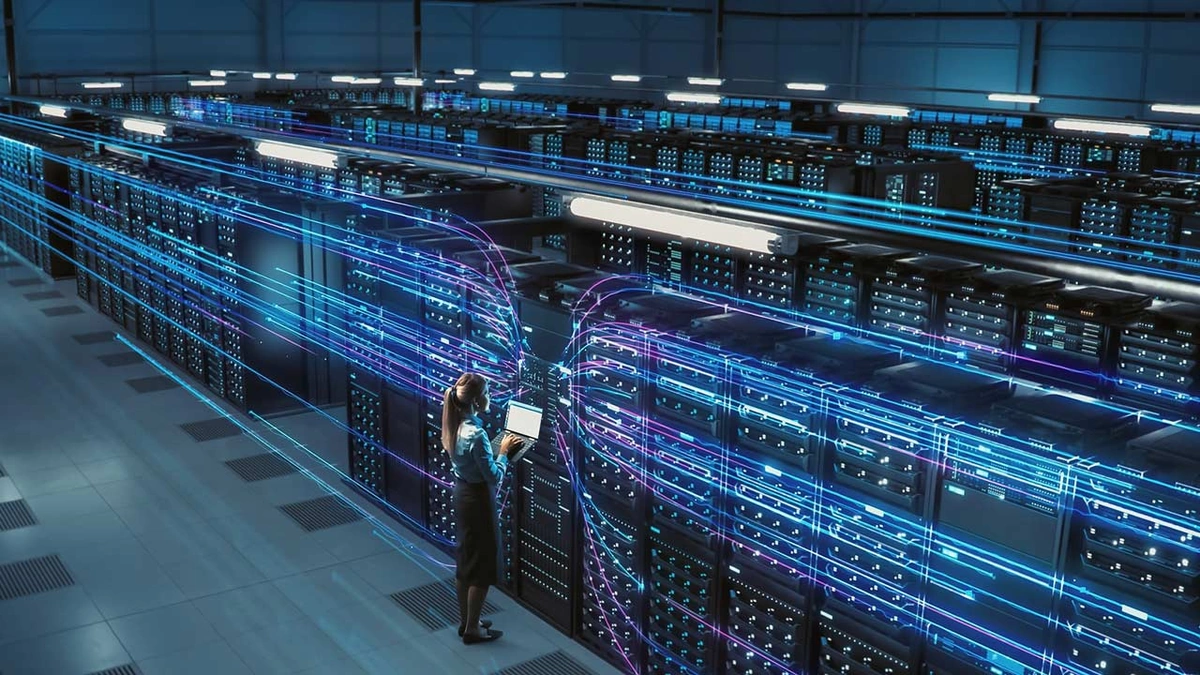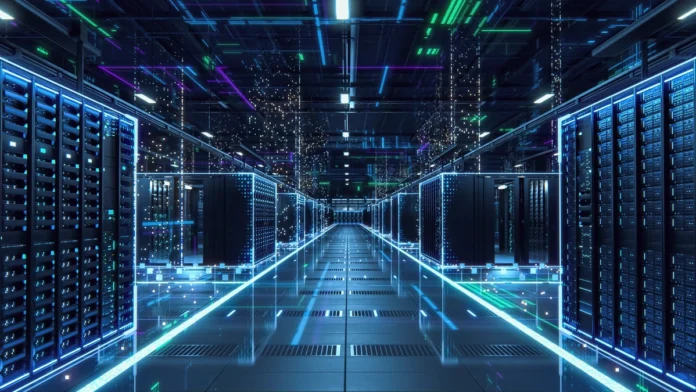Okay, folks, let’s talk about something HUGE. Like, $15 billion huge. Google just announced it’s dropping that kind of cash on an AI data centre in India. A record investment, they’re calling it. But here’s the thing – it’s not just about the money. It’s about why they’re doing it, what it really means for India, and what this signals about the future of artificial intelligence in the country . Because let’s be honest, numbers this big can be a bit… abstract. Let’s dive into the real-world implications of this massive investment.
Why India? The Strategic Play

First, the obvious question: why India? It’s not just about the massive population, although that’s definitely a factor. What fascinates me is that India has quietly become a hotbed for tech talent. We’re talking about a generation that has grown up with technology, is digitally savvy, and eager to innovate. Plus, India’s government is actively pushing for digital transformation. They’re creating an environment where companies like Google can thrive. Think about initiatives like ‘Digital India’ – these aren’t just slogans; they are genuine attempts to modernize the country’s infrastructure and empower its citizens with technology. This creates a fertile ground for data localisation and AI innovation .
And, well, let’s not forget the data. All that digital activity generates… well… data. Mountains of it. And that data is the fuel that powers AI algorithms . Building a data centre here gives Google a strategic advantage. They gain proximity to this data, and reducing latency and improving the efficiency of their AI models. It’s like setting up a refinery next to an oil field – makes perfect sense, right?
The Ripple Effect | Jobs, Skills, and Startups
Okay, so Google builds a shiny new AI data center . Big deal, right? Wrong. The real story is the ripple effect this investment will create. We’re talking about thousands of direct and indirect jobs. Not just construction workers, but also highly skilled engineers, data scientists, and AI specialists. These are the jobs of the future, and India is positioning itself to be a major player.
But it doesn’t stop there. This investment is going to act as a catalyst for the entire Indian startup ecosystem. Imagine a young entrepreneur with a brilliant idea for an AI-powered solution. Now, they have access to world-class infrastructure and talent right here in India. That levels the playing field and creates opportunities that simply didn’t exist before. It allows them to develop and deploy cutting-edge AI solutions locally.
What’s really fascinating is the potential for these startups to address uniquely Indian challenges. Think about AI-powered solutions for agriculture, healthcare, or education – tailored to the specific needs of the Indian market. That’s where the real magic happens.
Beyond the Hype | Addressing the Challenges of AI Data Centres
Now, let’s be real. It’s not all sunshine and roses. Building and operating an AI data centre comes with its own set of challenges. Energy consumption is a big one. Data centres are notorious energy hogs, and we need to make sure this new facility is powered by renewable energy sources. Otherwise, we’re just trading one problem for another.
And then there’s the issue of data privacy. With all that data flowing around, it’s crucial to have robust safeguards in place to protect the privacy of Indian citizens. We need clear regulations and ethical guidelines to ensure that AI is used responsibly and that people’s rights are respected. It’s a delicate balance, but it’s one that we absolutely have to get right.
Also, the conversation around job displacement due to AI adoption is very real. While new jobs are being created, some existing ones may become obsolete. The focus needs to be on reskilling and upskilling the workforce so that people can adapt to the changing demands of the job market. This will ensure a smoother transition into an AI-driven economy . The government and private sector need to work together to provide the necessary training and support.
The Future is Now | India’s AI Moment
So, what does all this mean? It means India is at a pivotal moment. This investment by Google is a vote of confidence in the country’s potential to be a global leader in artificial intelligence . But it’s not a guarantee of success. It’s up to us – the government, the tech industry, and individual citizens – to seize this opportunity and build a future where AI benefits everyone .
Think about the possibilities. AI-powered healthcare that reaches remote villages. AI-driven agriculture that improves crop yields and reduces waste. AI-based education that personalizes learning for every child. These are not just dreams; they are within our reach. But it requires vision, collaboration, and a commitment to using technology for the common good. It’s more than just an investment in physical infrastructure ; it’s an investment in the future of India.
And, in the grand scheme of things, I think it’s a reminder that India is no longer just a back-office for the world. It’s a hub of innovation, a source of talent, and a market with unparalleled potential. And Google’s $15 billion bet is a testament to that.
Consider also the global implications . This move could potentially challenge the dominance of other AI hubs and foster a more decentralized global AI landscape.
FAQ About Google’s AI Data Center Investment
What exactly will the AI data center do?
It’ll provide the infrastructure needed to power AI research and development , support AI-driven services, and drive innovation across various sectors in India.
How will this investment affect the average Indian citizen?
Expect to see improved AI-powered services in areas like healthcare, education, and agriculture, alongside new job opportunities in the tech sector.
Is this investment sustainable and environmentally friendly?
That depends. Hopefully, Google will commit to using renewable energy sources to power the data center and minimize its environmental impact.
What if I’m looking to break into the AI field in India?
Now is the perfect time! Upskill yourself with relevant courses, network with industry professionals, and explore opportunities with startups and established companies.
What regulations are in place to protect data privacy?
India is still developing its data protection laws. Keep an eye out for updates on the Digital Personal Data Protection Act for details.
Could smaller cities and towns benefit from this AI push?
Absolutely. The goal should be to decentralize AI resources and ensure that the benefits of this technology reach all corners of the country, not just the major metropolitan areas.



